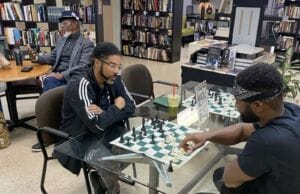With the recent statistics on Alzheimer’s disease and dementia, you will be pretty much aware of the fact that both these neurodegenerative mental health disorders have become heavily common in countries like Australia, UK, US an Africa. It is a progressive cognitive deterioration which can attack a person during his middle age or old age; though it is most commonly found among seniors who have crossed 65 years of age. In Australia, there are more than 850,000 people suffering from dementia and these numbers are all set to surpass 1 million by 2025. Among this staggering number, 65% of the dementia cases are caused by Alzheimer’s. This is why there are several news agencies which describe Alzheimer’s as an epidemic.
Clearly, there are large numbers of people who are affected by this mental health disorder as they age. Whether it is for a person who is providing in-home care Campbelltown or for the patient or for some other family member, there aren’t too many digital interventions which can make their lives easier. To know more on how technological innovations can help the life of a person with dementia, read on.
The role played by the latest technological innovations in the lives of dementia patients
Although it is true that there has been still no cure for Alzheimer’s and dementia, yet thanks to the advancements in the field of technology that there are the latest technological innovations that can ease off the burden of caregiving from the shoulders of an unprofessional caregiver. They can also ensure that their patients or loved ones remain absolutely safe and comfortable. This kind of assistive technology can promote independence and autonomy and manage safety risks and reduce stress. Take a look at the top inventions for caregivers.
Communication Aid
During the life of a person who is under memory care, effective communication is the key to attaining a peaceful life. Research reveals that people who suffer from dementia are able to remember the exact way that an event made them feel even though they might not be able to recall the names and faces. Thanks to technology that they can use adapted telephones which can be pre-programmed with the numbers that are most frequently dialed. Dialing is easy as the buttons are larger than normal ones. Then there are video chatting services like Skype, FaceTime through which you can stay in touch with people who are far away from you in terms of distance.
Dementia-friendly clocks
Did you know that there are several types of clocks which are specifically designed for people with dementia and they can ease off the anxiety which is usually related to the diagnosis of the disease? A dementia patient may find it confusing to distinguish between day and night and hence keeping an easy-to-read clock in front of them can help them know the exact time. The caregivers can also accordingly set a routine and explain the task that needs to be done at day or night.
Monitoring the use of electrical appliances
This one is indeed a brand new piece of technology which is designed specifically for the caregivers who are not co-residing with their near and dear ones. This electronic gadget is capable of monitoring the usage of electrical appliances which the patient regularly uses and this is done by plugging in a power strip or a wall outlet which can warn the caregivers in case the gadget has not been turned off after use. Though these technologies won’t make dementia diagnosis easy but they can certainly make the life of the patient simpler.
Home care robots
Staying in Melbourne, have you been wondering of seeking help of dementia care services Melbourne? You would earnestly thank the advancements in the field of digital wear that there are home care robots that can offer relief to the burden of caregiving. These robots are designed in such a manner that they can assist the caregiver but never replace her. The robots can perform daily household chores like alerting the doctors in case there’s instant help needed or reminding the patient to take his regular medicines. Though these robots are still not a part of standard care yet they’re certainly going to contribute a lot to caregiving industry.
GPS tracking devices
Those who suffer from the later stages of dementia can wander away from their homes and often get lost. In such cases if the caregiver is wise enough to attach tracking devices on their dresses which work like alert systems, they will get to trace their exact location even if they’re lost. This technology can also warn emergency personnel to make sure the patient is recovered as soon as possible.
Medicine management tools
When we say medication management technology, we mean a pillbox that’s marked with the days of the week or it can also mean a high-tech medicine box which beeps when it’s time for the patient to take a medicine. There are even some medicine boxes which have an attached vibrating alarm on a watch. When the caregiver is too busy with other tasks, he or she can trust with medicine management box.
Home monitoring devices
The home monitoring devices can let the lights to be turned off and on, thermostats to be changed to a more favorable temperature. In case the thermostat gets too hot, the caregiver will soon get an alert signal on his smartphone through an app. This is one of the best options for a long-distance caregiver who wishes to make sure that their loved ones are safe enough.
Message reminder
These reminders can keep your loved ones and properties safe when you can’t. All you have to do is to record a voice on a device and then play it back loud whenever it’s the right time. For instance when a dementia patient is all set to go out for an evening walk, there should be recorded message that reminds him to lock the front door.
Different sectors of technology for Alzheimer’s and Dementia patients
Whether it is for engaging a person with dementia or managing his behavior non-pharmacologically or designing a dementia-friendly environment or supervising from a distance, technology has played a pivotal role in taking care of their loved ones by offering tools which can take care of them. Who could have ever thought that technology would be ever embraced by the younger and elder generation in such a way? As you take a look at the bigger picture, you’ll get to know that there are several ways in which technology can reach a dementia patient.
Improving their functioning and enhancing independence
Dementia being a disease which leads to loss of memory, thinking abilities and reasoning skills and that crucially impacts the ability to carry everyday duties; the health care costs are tripled for the Americans who are more than 65 years of age. However, the good news is that technology is offering more and more possibilities for patients with Alzheimer’s to boost the quality of life, maximize independence and reduce caregiver burden.
TELE-HEALTH TECHNOLOGY
As long as tele-health technologies are concerned, they have several applications in the caregiving or home facility and they’re known to reduce stress both for the caregiver and the recipient.
• Video monitoring technology allows both the caregiver and recipient by offering important discussions on content for care with professionals and more instant feedback for the caregivers.
• With the more instant feedback to assist a caregiver, it can make changes towards their approach to difficult behaviors and also decrease the stress for the caregiver and the patient.
• Other such technologies include enuresis sensors, exit-sensors, CO detectors, flood detectors, temperature detectors, medicine reminders and bed occupancy sensors.
BEHAVIORAL MANAGEMENT
Latest studies have given enough evidence of the advantages of non-pharmacological treatments in dealing with difficult behavioral issues and stages of agitation. There are treatments like music, vibrating tube, fiber-optic string light, aroma diffuser, solar effect projector and plasma ball can improve restlessness, attention span and impulsiveness. Caregivers spoke of satisfaction and believed that this kind of multi-sensory technology was helpful for reducing agitation and anxiety.
SAFETY
Technology for improving safety is designed in such a manner that you can protect the patient, give him constant surveillance, prevent unintentional exits from home and also avoid them from getting injured. The safety devices include wearable ID programmed devices, medicine organizers, sensors for bed occupancy, location technology like GPS tracking devices, security bars for doors, window sensors and touchpad key locks.
Hence, as we see, technology has started playing a significant role in the lives of all and not just the dementia patients. If you consider the patients suffering from Alzheimer’s or dementia, they are more at ease with the help of the above listed technology gadgets. From managing them on their worse days to creating a safe environment for them, everything is possible with the help of technology.
How Alexa can help a dementia patient
Have you heard of the Amazon Echo which is a smart speaker? It is not just a smart speaker but it is also voice activated and has its own voice called Alexa that acts according to the instructions of the user. Alexa became available to the masses in America in 2015 June and since that year, Amazon have constantly brought several other products to complement Alexa like Dot and Tap.
People who use any device from the Echo family use such devices to transform their home into a smart home. It provides you with ways to turn lights off and on, turn up and down the heating system and all this is activated by voice. Echo also plays music with the help of its 360 degree speaker and added apps that have been opened for third-party functioning. Here are the few ways in which Alexa can assist people who are suffering from dementia.
1. Reminds you of medicines
With the help of remind feature, Alexa can automatically set a reminder for the patient who is suffering from dementia and remind them accordingly to take their medicines. Remembering things becomes the most difficult thing for a person suffering from Alzheimer’s and hence Alexa can be of immense help.
2. News, traffic and weather updates
Someone who is suffering from 3rd or 4th stage dementia may be struggling with words and phrases. Reading the newspaper is something beyond their imagination. Alexa can help them by providing with the latest traffic, weather and news update. The person can get to know what’s going on in the world without having to read the newspaper on his own. In case he is still able to drive on his own, he can get traffic and weather updates beforehand.
3. Answers to any questions
It is known by all that people suffering from dementia have difficulty in remembering things like what day of the week it is to the current president of the country. If you can enable the questioning mode of Alexa, it can answer all the questions and when the patient gets to know whatever he has asked for, he feels more comfortable and less confused about things.
4. Entertainment
Alexa can offer entertainment for all those who suffer from dementia. Want to know how? Amazon has its Echo Programs which can share jokes, riddles and stories with the dementia patients to alter their bad moods. Your loved one can keep listening to these and get uninterrupted hours of entertainment.
5. Maintains a track on lists
Alexa provides a rather easy and effortless way for a senior to track necessary purchases and other lists. The patient will only have to utter the word or the item’s name which they need to buy and Alexa will record it. Until the time they refer to the same item again, it will stay on the app.
Previously, the lives of the dementia patients were miserable as technology didn’t intervene as it does nowadays. However, now things are different and despite being a dementia patient, you can still maintain an independent and fruitful life.




